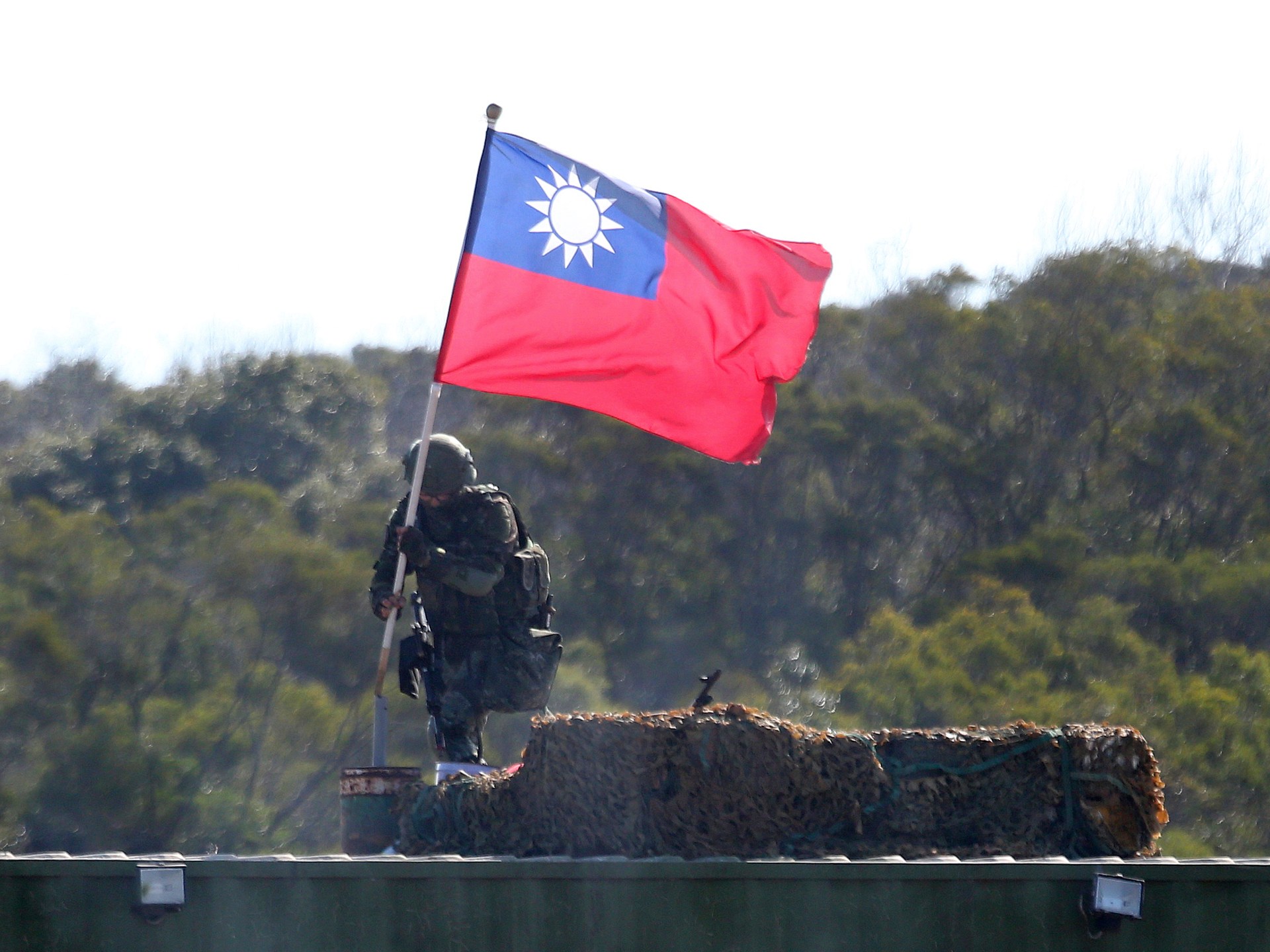China Vows to 'Crush' Foreign Interference in Taiwan Amid Japan's Missile Deployment & Taipei's Defense Boost
 China
Geopolitics
China
Geopolitics

China warns it will "crush" foreign interference in Taiwan following Japan's missile deployment plans. Taiwan boosts its defense budget by $40bn amid escalating
China Issues Fiery Warning as Regional Tensions Soar Over Taiwan
Beijing has issued a stern warning, declaring it will “crush” any foreign attempts to intervene in Taiwan's affairs, a statement that comes as Japan finalizes plans to deploy advanced missile systems near the self-governed island. This latest escalation underscores the deepening tensions in the East Asian region.
Beijing's Unyielding Stance on Sovereignty
Peng Qingen, a spokesperson for China's Taiwan Affairs Office, emphasized Beijing’s unwavering commitment to its national sovereignty and territorial integrity during a recent press conference. “We will crush all foreign interference,” Peng asserted, directly addressing Japan’s intention to deploy offensive weaponry adjacent to what China considers its Taiwan region. He described Japan’s move as “extremely dangerous,” designed to provoke regional tensions and military confrontation.
Japan's Defensive Maneuvers Near Taiwan
Japan’s Defence Minister Shinjiro Koizumi had earlier announced Tokyo’s decision to proceed with deploying a medium-range surface-to-air missile system on Yonaguni. This strategically vital island, Japan's westernmost outpost, lies just 110km (68 miles) off Taiwan's east coast and has housed a Japanese military base since 2016. Koizumi maintained that this Type 03 guided missile system is purely defensive, intended to safeguard Japan against incoming aircraft and missiles, thereby enhancing national security and reducing the likelihood of armed attacks. He explicitly stated these systems are not designed for offensive operations against other nations.
Taiwan Bolsters Defenses Amidst Rising Threat
Taiwan, meanwhile, has welcomed Japan’s increased military presence, viewing it as a measure that helps stabilize security in the vital Taiwan Strait. Deputy Foreign Minister Francois Wu noted the move aligns with Taiwan’s national interests, citing Japan's lack of territorial claims or hostility towards the island. Concurrently, Taiwan’s President William Lai Ching-te unveiled a substantial $40 billion supplementary defense budget, to be allocated over eight years (2026-2033), reinforcing Taiwan’s resolve to defend itself against a growing threat from mainland China. Lai stressed that history has demonstrated the futility of compromise in the face of aggression, emphasizing the importance of national sovereignty and democratic values.
Beijing Dismisses Taipei's Defense Spending
China's Taiwan Affairs Office, however, dismissed Taipei’s increased defense spending as a wasteful endeavor. Spokesperson Peng Qingen argued that these funds, which could otherwise improve citizens' livelihoods and boost the economy, are being squandered on weapons and efforts to curry favor with external powers. He warned that such actions would “only plunge Taiwan into disaster.”
Escalating Tensions and Diplomatic Friction
These developments occur amidst a backdrop of heightened military activity. Japan recently scrambled aircraft after detecting a suspected Chinese drone flying between Yonaguni Island and Taiwan. Furthermore, remarks by Japan's new Prime Minister Sanae Takaichi, suggesting potential military intervention in the event of a Chinese attack on Taiwan, have further strained Tokyo-Beijing relations. While Takaichi has declined Beijing’s demand to retract her comments, Tokyo has expressed openness to talks to de-escalate the situation, even as a Chinese boycott on travel to Japan signals continued diplomatic friction.